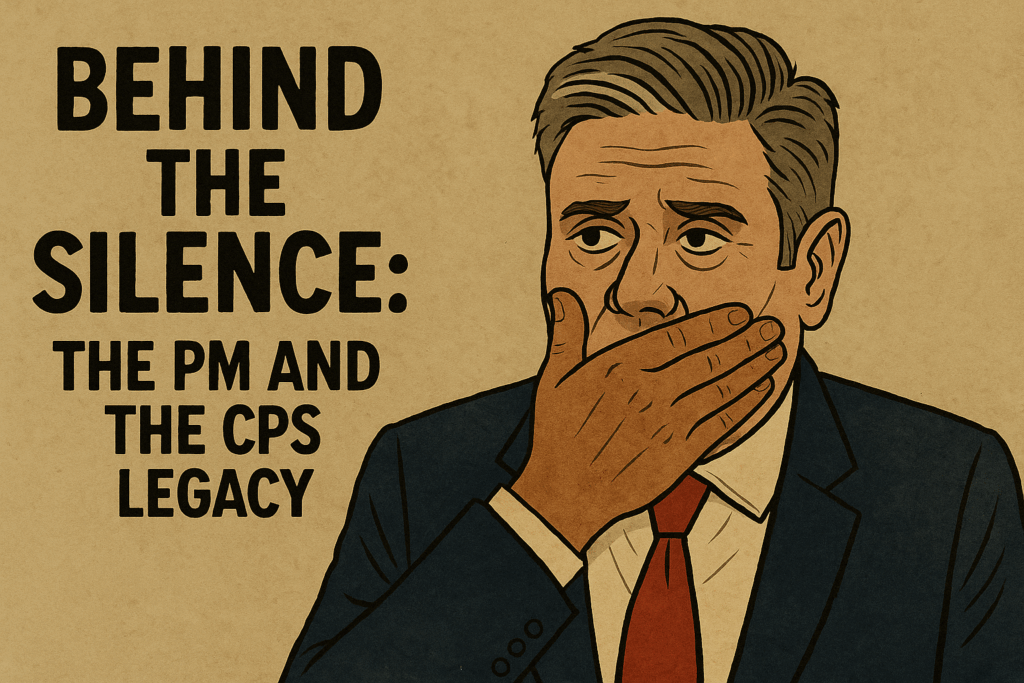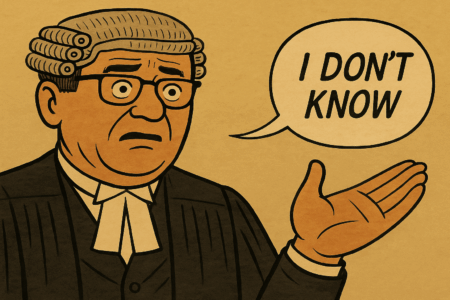Before Sir Keir Starmer was paraded as the saviour of British politics, before the media christened him the man of “integrity” and “accountability,” he was the Director of Public Prosecutions (DPP)—arguably one of the most powerful legal positions in the country.
From 2008 to 2013, Starmer was in charge of the Crown Prosecution Service (CPS), the very body responsible for deciding whether or not criminal charges are brought in the most serious of cases. It was a role that demanded leadership, courage, and an unwavering commitment to justice.
But when it comes to his record during that time, Starmer appears to suffer from a very selective memory. Because some of the most disgraceful legal failures of our generation happened on his watch—and to this day, he insists none of them ever crossed his desk.
The Jimmy Savile Scandal: A Missed Opportunity for Justice
Let’s start with Jimmy Savile—the serial predator who evaded justice for decades while abusing hundreds of children and vulnerable adults under the noses of Britain’s institutions.
In 2009, allegations against Savile were referred to the CPS. Victims came forward. Police gathered evidence. But the CPS, under Starmer’s leadership, declined to prosecute. According to later reviews, there was “sufficient evidence” to consider charges. But the complaints were deemed “not strong enough,” and Savile was never even interviewed under caution.
By the time Starmer issued a public apology in 2013—only after the full scale of Savile’s crimes had been exposed—he was already on his way out of office, comfortably knighted and feted by the liberal elite. He said the decisions were made by “junior lawyers.” He said he didn’t know.
But when you’re the DPP—the top dog—the buck stops with you. If your department fails to pursue one of the worst paedophiles in British history, you don’t get to claim plausible deniability. You don’t get to walk away with your pension and your peerage while victims are left with nothing.
Unless, of course, you’re Keir Starmer.
Mohamed Al Fayed and the Unopened File
Another case that disappeared into the long grass under Starmer’s CPS was that of Mohamed Al Fayed—the Egyptian billionaire and father of Dodi Fayed, who died alongside Princess Diana.
Al Fayed, who for years was surrounded by rumours and allegations, was reportedly under investigation for a range of offences, including sexual abuse. But during Starmer’s tenure, these allegations went nowhere. The CPS declined to pursue charges, and the entire matter was quietly shelved.
When questioned years later, Starmer claimed he had no knowledge of any files relating to Al Fayed crossing his desk. How convenient.
Here we have a powerful, well-connected man. Victims. Allegations. Police involvement. And once again—no justice, no transparency, and no accountability.
One has to wonder: was the CPS asleep at the wheel? Or was it under strict instructions to look the other way?

The Grooming Gangs: Britain’s National Shame, Still Ignored
But perhaps the most damning of all failures under Starmer’s CPS was the systemic cover-up of the grooming gangs operating across the UK.
While Starmer was DPP, multiple police forces and councils across England were sitting on mountains of evidence that gangs of mostly Pakistani-heritage men were raping, trafficking, and abusing young white working-class girls in towns like Rotherham, Rochdale, Telford, Oxford, and beyond.
Social workers knew. Police knew. Councils knew. But when cases were referred to the CPS, many were quietly dropped. Victims were dismissed as “unreliable witnesses.” Prosecutors failed to act on police recommendations. And abusers were allowed to walk free, emboldened by the silence of the authorities.
Starmer now says these cases never reached him directly. He claims they were dealt with by local offices. But again—the question is not whether a single file crossed his desk. The question is what he did to investigate and address the pattern of failures happening under his very nose.
No. He kept quiet. Just as the victims were told to keep quiet. Just as whistleblowers were ignored.
And now, with the luxury of hindsight, he wants to wash his hands of it all.
Did he launch an internal review? Did he hold anyone to account? Did he speak out about the risks of political correctness overriding justice?
Leadership Without Responsibility
Starmer’s go-to defence, when confronted with these catastrophic failures, is as tired as it is insulting:
“It never came across my desk.”
But leadership isn’t just about reading files. It’s about asking the right questions. It’s about setting priorities. It’s about recognising patterns, investigating red flags, and stepping in when something clearly stinks.
Starmer was happy to take the title. Happy to accept the knighthood. Happy to collect the pension that came with just five years in office—secured with the help of a special parliamentary measure, no less.
But he doesn’t want the baggage. He doesn’t want to answer for the failures. He doesn’t want to wear the blame for the lives destroyed, the victims let down, or the predators who were emboldened by inaction.
In short, he wants the prestige without the price. The rewards without the responsibility.

The Public Deserves the Truth
If Starmer wants to be Prime Minister of this country, he should first answer honestly for his record as the man in charge of prosecutions. Not just in soundbites. Not just in rehearsed media lines. But in full transparency.
Why were grooming gangs allowed to operate with impunity for years on his watch?
Why did the CPS decline to prosecute Savile despite multiple victims and clear patterns?
Why were allegations against powerful figures like Al Fayed swept under the carpet?
And most importantly: what has he learned? What has he changed?
Because as it stands, there is little sign that the man now in Number 10 is any more willing to confront hard truths than the man who once ran the CPS.
Conclusion: A Pattern of Silence and Evasion
For a politician who built his brand on professionalism and responsibility, Keir Starmer’s actual record tells a very different story. A story of silence. Of looking the other way. Of hiding behind bureaucracy while real lives were ruined.
Starmer may not have pulled the trigger, but he presided over a justice system that time and time again refused to act. And in doing so, he became part of the very establishment that enabled injustice.
He wants the country to move on. To forget. To focus on his present image—polished, controlled, focus-grouped to death.
But the past is not going away. And nor should it.
Because true leadership begins with accountability. And until Keir Starmer answers for the failures he oversaw, his moral authority remains nothing more than a façade.

